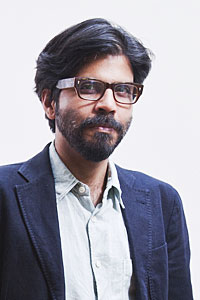
Political life in the West, it is safe to say, has not witnessed a figure such as Donald Trump for decades. His attacks on the parents of army captain Humayun Khan, who died on duty in Iraq in 2004, is the latest jaw-dropping episode from his presidential campaign. But as he lurches toward what one hopes will be ignominious defeat in November, we must also acknowledge two positive contributions he has made, however inadvertently, to public life.
For one, with his merciless denunciations of Muslims, he established Islamophobia as an incontrovertible and toxic presence in our societies. Strange as it may seem today, many public figures strenuously denied that anti-Muslim prejudice had exploded following the attacks of 9/11. The writer Sam Harris wasn't alone in proclaiming that "there is no such thing as Islamophobia". Much crude prejudice and aggressive ignorance were aired under the rubric of "criticising" and "reforming" Islam.
Mr Trump's proposal to ban Muslims from the United States came out of this deepening climate of prejudice. The disturbing runaway success of his primaries campaign allowed us to look squarely in the eye the bigotry that held anyone with a Muslim-sounding name, or dark skin, beard and turban (potentially billions of people), responsible for the crimes of a few fanatics. Mr Trump's extreme and popular xenophobia enabled a real reckoning with the sheer craziness of a clash of civilisations.
His other contribution is even more vital. Like all demagogues, Mr Trump has sought to rebuild the unity of his "tribe" by identifying its enemies -- Muslims, Mexicans, immigrants in general. This scapegoating of innocent people has been a practice since the earliest human tribes. People losing their sense of cohesion always found an internal or external enemy to demonise. Indeed, most primitive religions centred on the ritualistic sacrifice of this victim.
The modern era did not do away with such archaic modes of violence. In the 19th century, as a global capitalist and industrial economy came into being, the figure of the Jew became the scapegoat for people feeling traumatised by rapid and uncontrollable socio-economic changes.
One demagogue after another in Europe tried to stigmatise Jews as money-grubbers, fifth-columnists and international conspirators. These mass manipulators were calamitously successful in persuading many alienated and confused Europeans that stability and solidarity lay in persecuting the unassimilable and biologically different Jew, and his liberal, cosmopolitan and socialist supporters.
Today, political dysfunction and economic crisis have opened up fresh scope for tribalist politics in Europe and America as well as Asia and Africa. The hoary tradition of scapegoating has re-emerged in the heart of the secular and post-modern West; and its victims tend to be Muslims and immigrants. Mr Trump is among many demagogues who promise to restore a state of primal wholeness, defining this unity of the people against the insidiously divided loyalties of transnational elites.
Recent terrorist attacks by deranged and nominally Muslim young men have provided grist to his mill. And Mr Trump clearly felt himself to be on a roll when he decided to attack Khizr and Ghazala Khan, the late Capt Khan's Pakistani immigrant parents.
Inviting Mr Trump to read the US constitution at the Democratic Convention, Khizr Khan had spoken for many ordinary citizens who feel isolated and stigmatised. Mr Trump could have chosen to ignore him. But he decided to assault the Khans for their evidently suspect Muslim background. In this very public process, he carelessly did something that the exponent of scapegoating should never do: Reveal to all the innocence of his victim.
Scapegoating worked for centuries, allowing groups to release their pent-up tensions, only because human beings collectively believed in the guilt of their victims. So fanatical was anti-Semitic passion in France in the 1890s that no amount of contrary evidence could save Alfred Dreyfus, the Jewish army captain, from being held guilty of treason. This wholly blameless victim of virulent and widespread prejudice had to be sacrificed to appease the rage of all those who had been persuaded by demagogues to believe that Jews were traitors.
Capt Dreyfus, however, was eventually exonerated. Capt Khan, on the other hand, gave up his life for his country; and his bereaved parents have to live with the knowledge that their son died in a catastrophically ill-conceived war. Few such prominent victims of scapegoating have ever been as obviously innocent.
Mr Trump will of course continue his persecution of the guiltless. But he will now have to reckon with a rising tide of revulsion. Having established Islamophobia as an undeniable fact, the Republican presidential candidate has now managed to expose the profound irrationalism of such tribalist hatreds. For such illumination, if nothing else, Donald Trump deserves our thanks. ©2016 Bloomberg View
Pankaj Mishra, a Bloomberg View columnist, is an essayist and novelist based in India and London.
